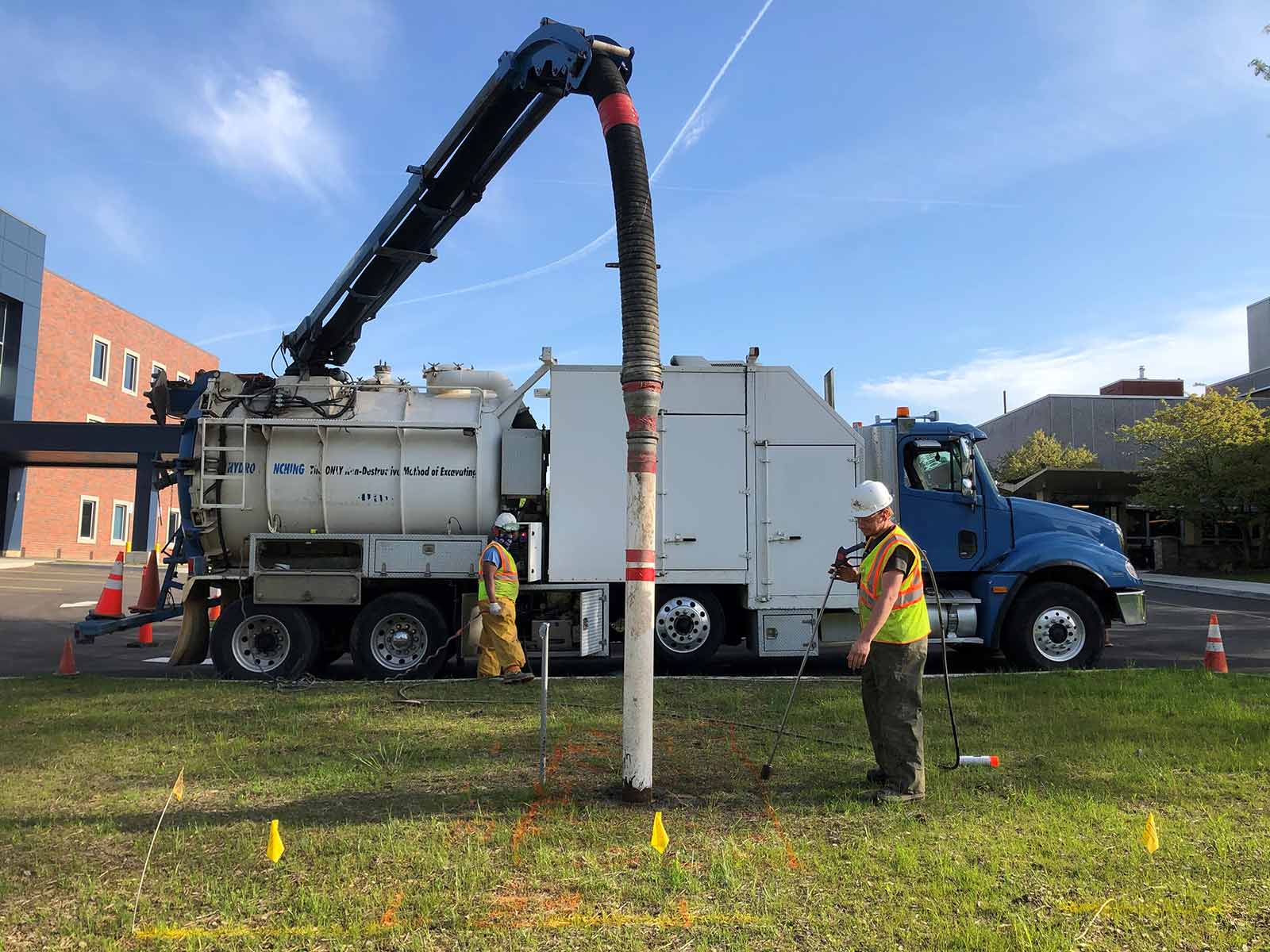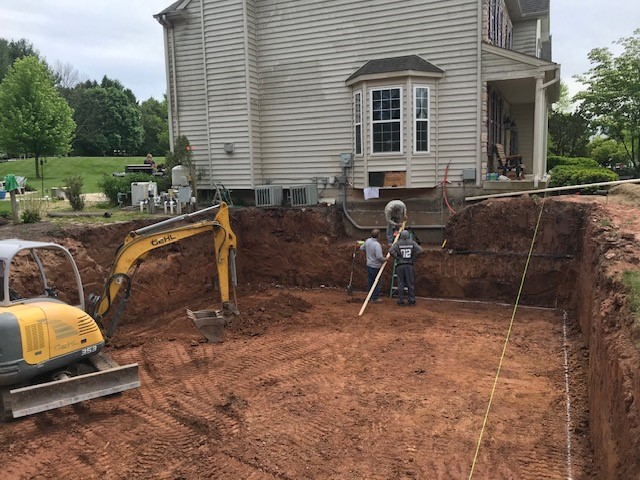Professional Septic Ohio - Relied On Septic System Experts in Ohio
Professional Septic Ohio - Relied On Septic System Experts in Ohio
Blog Article
Comprehensive Excavation Strategies: Mastering the Principles for Success
In the world of building and civil engineering, the value of efficient excavation methods can not be overemphasized. The cautious preparation, precise implementation, and thorough attention to information called for in excavation projects demand an extensive method that incorporates different basic aspects. From initial dirt analysis to the application of safety and security measures and normal progression monitoring, understanding these core elements is necessary for accomplishing success in any kind of excavation undertaking. The true mastery lies not simply in understanding these principles but in perfectly incorporating them to browse the intricacies of excavation jobs with finesse.
Recognizing Excavation Job Preparation

The initial phase of any type of excavation project is the planning stage, where crucial choices are made that can considerably affect the end result of the project. Understanding the project extent, timeline, and budget plan restrictions is vital for producing a comprehensive excavation strategy that makes sure the project's success.
One secret facet of excavation task planning is the advancement of a detailed timeline that lays out the series of deadlines, milestones, and tasks. This timeline acts as a roadmap for the job team, allowing them to track progress and make necessary modifications to ensure the task remains on timetable. In addition, a distinct budget that makes up all expenses, consisting of devices rental, labor expenses, and materials, is necessary for preventing cost overruns and delays. By carefully taking into consideration all these aspects throughout the preparation phase, excavation tasks can be executed effectively and efficiently, bring about successful end results.
Soil Analysis and Website Assessment
Conducting extensive dirt analysis and website evaluation is a critical action in the prep work stage of any type of excavation project. Dirt evaluation involves establishing the structure, framework, and properties of the dirt at the excavation website. This information is important for comprehending the dirt's bearing capability, wetness material, and capacity for erosion, which are essential consider figuring out the excavation methods and equipment needed for the job.
Website analysis exceeds dirt evaluation and encompasses a broader analysis of the general site problems. This examination includes recognizing any kind of possible hazards, such as underground utilities, ecological issues, or unsteady terrain, that might impact the excavation process. By thoroughly examining the website, job managers can develop efficient excavation approaches that prioritize security, efficiency, and ecological defense.
Using sophisticated modern technologies like ground-penetrating radar, dirt sampling, and drone studies can improve the precision and effectiveness of soil evaluation and site assessment. Investing time and resources in these initial actions can inevitably save time and avoid pricey delays or problems throughout the excavation process.
Tools Choice and Utilization
Effective excavation jobs count greatly on tactical equipment selection and application to make certain ideal efficiency and efficiency. Choosing the ideal devices for the task is crucial in making best use of performance and lessening downtime. Aspects such as the kind of dirt, deepness of excavation, and project extent play a significant duty in determining one of the most ideal equipment for the task available.

Along with picking the appropriate devices, proper use is essential to task success. Operators must be trained to deal with the devices safely and effectively - septic ohio. Regular upkeep checks and prompt repairs aid protect against breakdowns and make certain consistent performance throughout the task
Precaution and Rules Compliance
In the realm of excavation jobs, prioritizing safety and security steps and compliance with regulations is extremely important to making sure a legitimately sound and safe and secure operational setting. Security steps include a variety of methods, including conducting complete site analyses, applying appropriate signs and barriers, and supplying sufficient security training for all employees associated with the excavation procedure. Adherence to laws, such as OSHA requirements in the USA, ensures that the excavation task satisfies the essential link standards to safeguard workers, onlookers, and the surrounding environment.

Tracking Progression and Adjusting Methods
Just how can forecast managers successfully track the improvement of excavation projects and adjust their methods as necessary to optimize results? Monitoring development is vital for making sure that excavation tasks remain on track and meet target dates. Task managers can make use of different devices and strategies to track progress, such as day-to-day report card, normal site examinations, and progressed surveillance modern technologies like drones and general practitioners tracking systems. By constantly keeping track of the project's innovation, supervisors can recognize any potential delays or concerns early on and take aggressive steps to resolve them.

Final Thought
Finally, grasping the fundamentals of thorough excavation approaches is essential for the success of any task. By understanding task preparation, assessing soil and site problems, choosing appropriate devices, abiding by safety regulations, and keeping track of development, project supervisors can make certain a smooth and efficient excavation process. Carrying out these special info techniques will certainly bring about effective results and minimize prospective risks or obstacles throughout the excavation task.
The first stage of any kind of excavation project is the preparation stage, where crucial choices are made that can substantially influence the end result of the job. Understanding the project extent, timeline, and budget restraints is crucial for developing an extensive excavation plan that makes certain the job's success.
Exactly how can forecast managers efficiently track the innovation of excavation jobs and adapt their techniques accordingly to maximize end results? By carefully keeping an eye on progression and being willing to adjust strategies, task managers can enhance the overall success of excavation jobs.
By understanding project planning, evaluating dirt and site problems, picking appropriate devices, complying with safety and security laws, and monitoring development, task supervisors can guarantee a effective and smooth excavation procedure.
Report this page